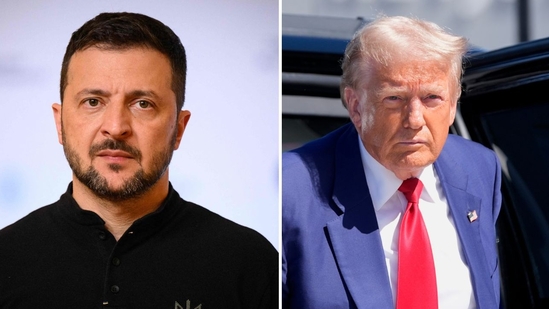Trump’s Ukraine Pivot: EU Left Holding the Bag as Zelensky Pleads for Patriot Missiles
The European liberal-globalist establishment is grappling with a new geopolitical reality: President Donald J. Trump is not budging on Ukraine.
In a sharp departure from the blank-check foreign policy of the previous administration, Trump has reportedly turned down a $50 billion missile deal proposed by Ukrainian President Volodymyr Zelensky. Despite Kiev offering to pay using European Union funds and frozen Russian assets, Trump’s response was firm — and unmistakable.
Zelensky’s Desperation Meets Trump’s Doctrine
Ukraine, under increasing military pressure and desperate for air defense systems, is attempting to buy hundreds of U.S.-made Patriot missiles. With a price tag of €5.5 million per unit, Zelensky declared that Ukraine had the €44 billion (approx. $50 billion) ready to fund the purchase.
“No freebies,” was essentially Trump’s stance.
“You know, he always wants to buy missiles,” Trump reportedly said. “But you see, when you start a war, you should know that you can win that war. You can’t start a war against an opponent 20 times bigger and then hope that someone will give you missiles.”
A Europe-Only Burden
Zelensky’s offer hinged entirely on EU taxpayer money and seized Russian assets, as Washington’s new posture makes clear it will no longer shoulder the lion’s share of Ukraine’s defense tab. With U.S. aid packages on hold and Trump’s administration signaling a strategic shift toward diplomatic normalization with Moscow, Europe is left scrambling to fill the gap.
BILD, Germany’s largest tabloid, reported on Zelensky’s latest missile plea with subtle desperation, acknowledging that without American-made Patriots, Ukraine’s air defenses remain critically exposed.
Trump’s Realignment: Peace Through Strength – and Strategy
While establishment media frame Trump’s posture as “abandoning Ukraine,” insiders see a calculated realignment: ending endless wars and prioritizing American strategic interests. That includes de-escalation with Russia and exploring opportunities for economic and energy collaboration that were previously off-limits under the Biden-era Cold War posture.
Trump’s rejection of the $50 billion Patriot deal isn’t merely a budgetary choice — it’s a signal that his foreign policy is governed by hardline realism, not ideological entanglements.
Conclusion: Europe on Its Own
Zelensky’s hope that EU funds could coax Washington into supplying weapons fell flat. For Europe, the realization is dawning: Trump’s America is no longer the arsenal of liberal globalism. And for Ukraine, that means the cost of war may soon be one it can no longer afford — politically, militarily, or diplomatically.

